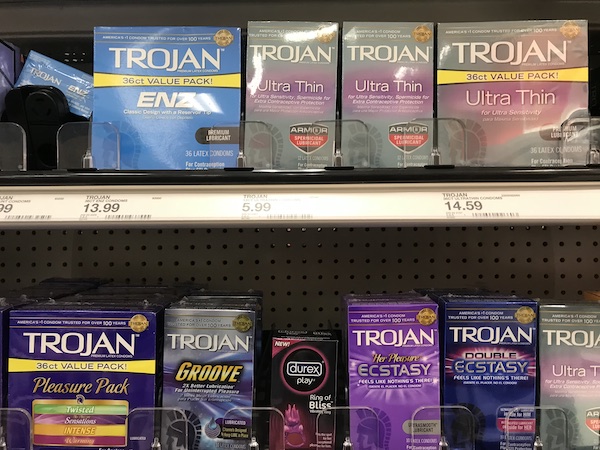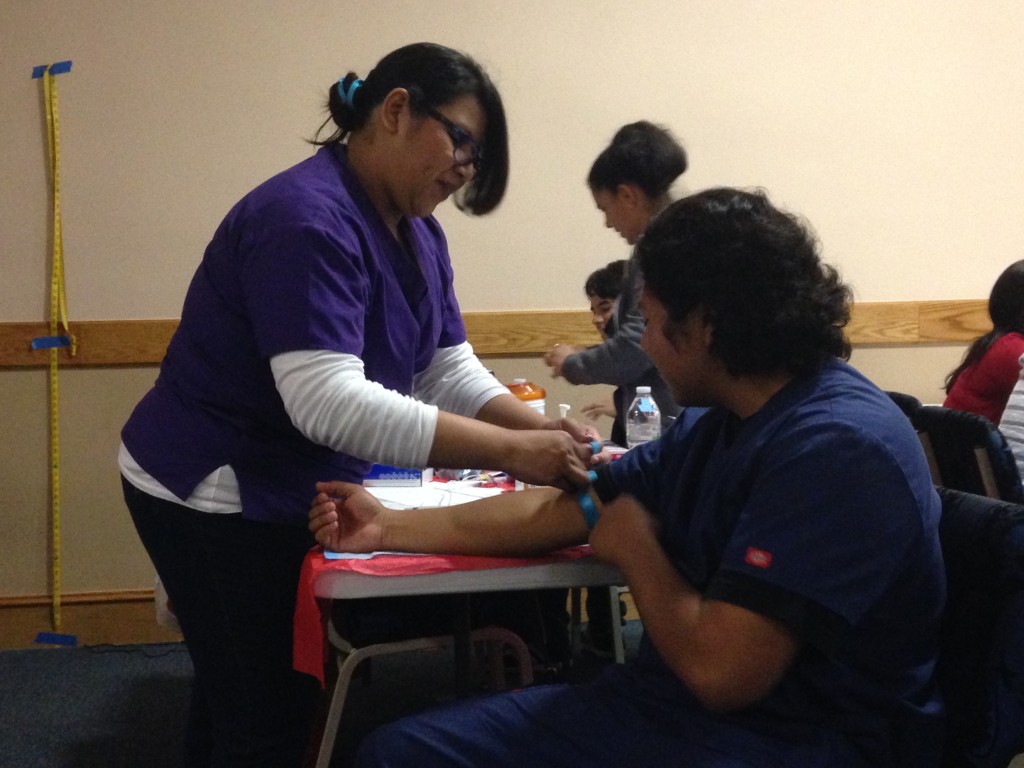
Pepperdine administrators don’t want students to talk about sex.
But students believe conversations about safe sex are necessary — even at a Christian university,
“A big thing about Pepperdine is having open dialogues, being diverse and inclusion, and wanting to have discussion with people who are different from you,” said Cindy Kim, junior communication major and Resident Advisor for Pauley House. “They should follow through with that and have open discussions with people who have different views on sex.”
A Pepp Post poll of 16 students found that more than 87 percent would like to see Pepperdine have more open conversations regarding safe sex and just over 12 percent were not sure.
What do the students say about sex ed at Pepperdine?
Some students said they did not know what the Student Health Center at Pepperdine provides in terms of sexual education or related medical care.
“Honestly I have not heard anything yet,” Olivia Benner, freshmen international studies major said regarding sex ed at Pepperdine. “The only health-related thing I have heard of this year has been flu shots, and that’s probably about it.”
Starting out her third year at Pepperdine, Kim said she is still waiting.
“I personally haven’t heard anything about sexual education courses,” Kim said. “I think the Student Health Center gives STI screenings and I only know that because my freshmen year I worked in the SGA and we had a discussion on the SHC.”
A Pepp Post poll found that 94 percent of students surveyed were either unsure what sex ed Pepperdine provides or believed it wasn’t provided at all.
Kim also said she hopes that the university will do more to “challenge our mindset” by initiating conversations on controversial topics such as sex ed on a Christian campus. She said the university should prepare students for life after graduation.
“After we’re done with Pepperdine, we are not going to a 100 percent Christian world, so I feel like Pepperdine needs to gear us up and needs to give us resources on how to answer questions to those who may be coming from non-Christian backgrounds,” Kim said.
Although Pepperdine is a Christian university, there are students on campus who do not abide by all of the biblical teachings that Pepperdine encourages.
A Pepp Post poll found that 87 percent of students surveyed know someone who has engaged in sexual activity while being a student at Pepperdine.
Junior psychology major Rachel Stern said she believes it is necessary that all colleges teach sex ed to their students.
“I see the benefits of teaching students how to be sexually safe, weighing out the negative side effects of, in a sense, promoting premarital sex, so I think it is important that all college campuses teach students sex ed,” Stern said.
Freshman business major Michael Reed said his friends from other universities are telling him all about the safe sex measures that their universities are taking.
“A lot of my public school friends have told me that they give out free condoms in the dorms, and I would never expect Pepperdine to do something like that, but it would be nice for Pepperdine to address sex in some capacity rather than ignore it,” Brown said.

What services does Pepperdine offer for sexually active students?
Dr. Lucy Larson, medical director of the Pepperdine Student Health Center, wrote in an email that the health center’s top priority is to care for every patient no matter their religious beliefs. The SHC sees many different patients including married couples and non-Christian students.
“We also do some outreach (we have limited time to do so due to patient demand), including the annual sexual integrity Convocation, which encourages values-based and health-informed decision making,” Larson wrote.
Since 2008, the SHC has put on a Convocation series dedicated to openly discussing issues and questions regarding sexual health, Rachel Littauer wrote in a June 2014 Pepperdine Graphic article.
“Most students will have sex sometime in their lives and being educated about contraceptive options and how to prevent diseases is important for everyone,” Larson wrote.
What about sex ed from a Christian perspective?
Kelly Haer, Pepperdine’s Relationship IQ director, believes sex should be preserved for marriage and that studying the effects of sex before marriage helps Christians understand God’s design.
“I believe that the more information that we have about the physical, emotional, and relational consequences of sex, the more we will see God’s wisdom in telling us that sex is to be reserved for marriage,” Haer wrote in an email.
In regard to teaching sex ed at Pepperdine, Haer supports a program that will encourage students to save sex for marriage by understanding the impact premarital sex has on the heart and mind — not just the body.
“I’m all for truthful information about sexual health. If that information is presented in a way to promote sex outside of marriage, then I believe that information is being misused,” she wrote. “The best sexual education covers emotional and relational consequences of sex — not just the physical consequences.
“At Relationship IQ, we like to recognize that there’s not a condom for your brain!” Haer continued. “In other words, your brain is impacted by sex no matter what. It’s good for people to be informed of sexual realities in order to be empowered to make good choices.”
Cameron Cole, author and church director, has a similar viewpoint on sex ed for Christians.
“We tend to believe that teenagers think about sex all of the time simply because of the onslaught of hormones that they encounter during adolescence,” Cole said in a June 2015 Gospel Coalition article.
Cole wrote that Christians are doing teenagers a disservice by making sex ed just about hormones, contraceptive and abstinence. He believes it is important to make the connection between teenagers’ sexual desires with a deeply-rooted desire for relational intimacy with God.
“Offer youth this hopeful, God-centered perspective: your desire for sex really is a desire for deep connection with God and people,” Cole wrote.
Connie Horton, vice president of Student Affairs, Allie McIntosh, Health and Wellness Education coordinator, and Mark Davis, dean of Students, all said they did not feel comfortable discussing sex ed at Pepperdine.
What do experts say about sex ed?
Some 71 percent of American 19-year-olds have had sexual intercourse, according to an online article from Stay Teen, a website providing teens with information on sex and relationships. The article also argues for the importance of sex ed, pointing out that sex is “a fundamental part of being human.”
“Sex education should be mandatory, comprehensive, medically accurate, and taught throughout student’s school years, just like math,” according to the article.
Many schools promote sexual education in order to protect their students from the dangers of an unhealthy sex life.
“Each and every day in the United States, some 10,000 teens contract a sexually transmitted disease, 2,400 get pregnant, and, tragically, 55 contract human immunodeficiency virus (HIV),” Debra Hauser wrote in an October 2005 Journal of Ethics article.
Hauser wrote in her article the “just say no” approach that is adopted by many schools across the nation puts teens in a dangerous spot by not providing them with the information necessary to make wise decisions now or later in life.
What is the future for sex ed at Pepperdine?
Benner said she is satisfied with the current state of sex ed at Pepperdine and does not think there should be any changes made to it.
“I think because it’s kind of understood that high school teaches that as a requirement that they don’t necessarily need to teach sex ed in college because you should have come in knowing it,” Benner said.
On the other hand, Kim said she hopes to see changes in regard to sex ed on campus.
Kim said that if Pepperdine were to address sex, they would also need to include LQBTQ sex. She said Pepperdine is still struggling to accept the LQBTQ community, so having to address two taboo topics would be too difficult.
“I don’t think Pepperdine is ready for that, so I think it’s going to take a very, very long time for Pepperdine to open up about sexual education,” Kim said.
Kaitlyn Ishii completed the reporting for this story under the supervision of Dr. Christina Littlefield and Dr. Theresa de los Santos in Jour 241 in spring 2018. Dr. Littlefield supervised the web story and Dr. de los Santos supervised the video package.



